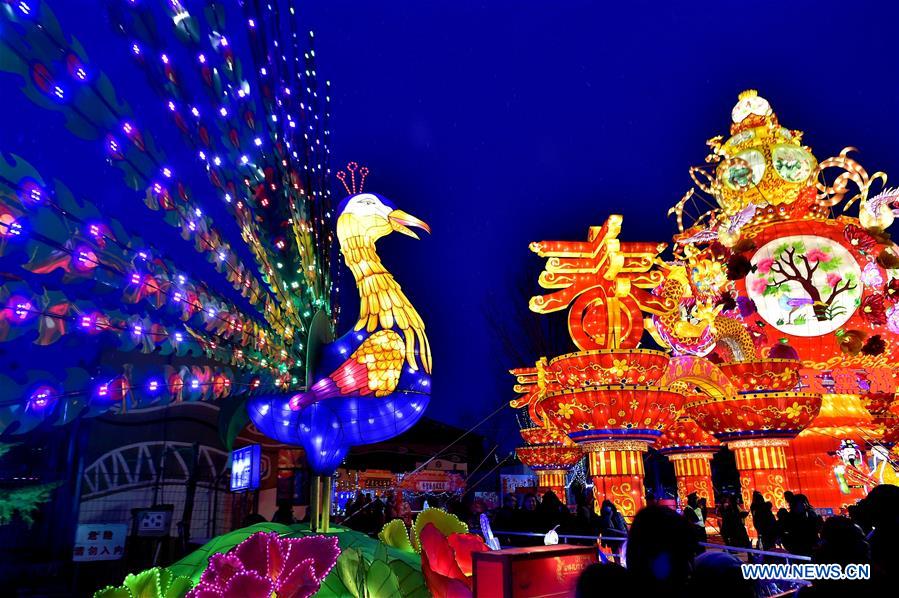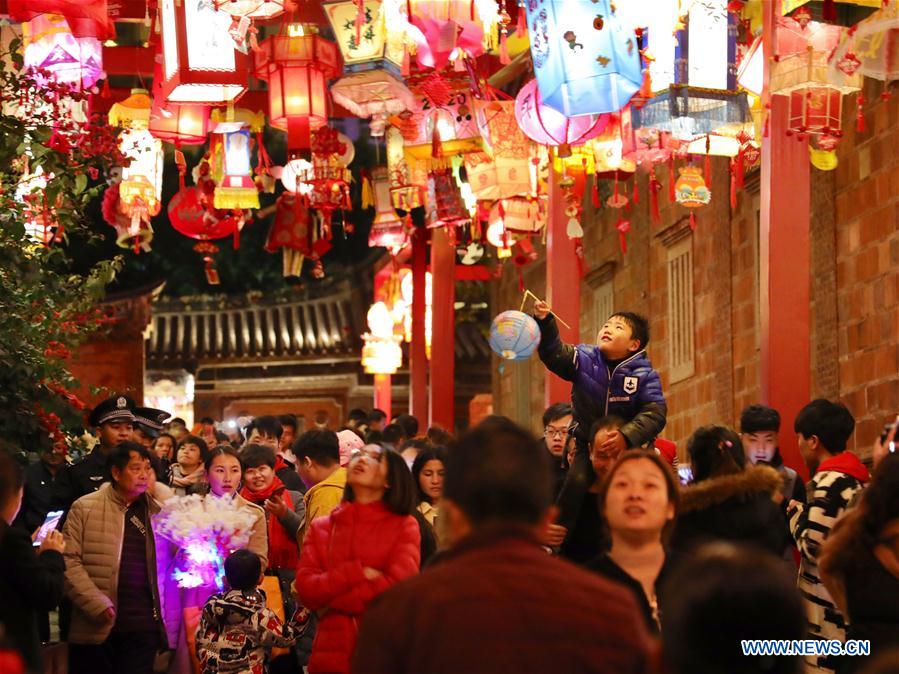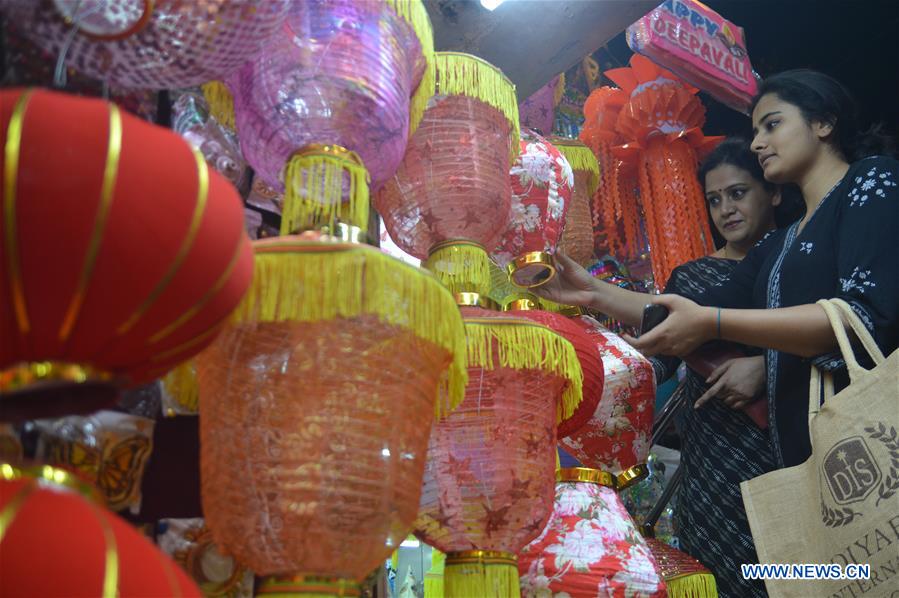Lantern Festival fills people with hope, love and peace
- By Manisha Chakraborty
 0 Comment(s)
0 Comment(s) Print
Print E-mail China.org.cn, February 19, 2019
E-mail China.org.cn, February 19, 2019

India and China are proud of their long history of respective civilizations. The two countries have shown striking similarities in the fields of traditional festivals, most of which still play a key role in the progress of human civilization.
The two grandest celebrations – Chinese Lunar New Year and the Diwali (Festival of Lights) – have their own unique cultural concepts, binding the social body with a strong sense of historical togetherness.
This year, the Chinese New Year began on February 5 marking the start of the Year of the Pig. The last day of the 15-day Lunar New Year celebrations on February 19 will be marked by the Lantern Festival, or Yuan Xiao Jie.
Interestingly, both the Lantern Festival and Diwali are celebrated in the two countries in very similar fashion. Both Chinese and Indian people decorate their houses, streets and open places with lanterns or they light candles. In family gatherings, they play music and dance. The two events serve up an image of glittering lights, firecrackers and noisy festivities. Light, light, everywhere!
The starting point of Lantern Festival has its roots in ancient customs, aided by many legends that make it quite fantastical. According to one legend, the Jade Emperor, the highest God in Heaven, was so angered at the people on Earth for killing his beloved goose that he decided to destroy them with a storm of fire on the fifteenth day of the first lunar month.
However, a good-hearted fairy heard of this planned act of vengeance and warned the people in towns and villages to light lanterns on the appointed day. They acted accordingly, and from the Heavens, it looked as if towns and villages were already ablaze. Satisfied that his goose had already been avenged, the Jade Emperor decided not to add to the perceived destruction.

The history of Lantern Festival can also be traced back to the time when Emperor Wen of the Western Han Dynasty (206 B.C.-25 A.D.) officially set the 15th day of first month of the Chinese calendar as the Yuan Xiao Festival. Ever since then, people have been hanging lanterns of different shapes and colors through the streets, forming a folk festival that full of hope, love, peace and a rejuvenated mind to face the new year.
However, whether these legends and myths surrounding the origins of Lantern Festival or any other festival in the world are true or not do not intrude on our savoring of the charm of the festivals that are aimed at enhancing cultural communication and strengthening friendships between nations.
Various activities, such as admiring different lanterns, guessing of lantern riddles and folk art performances, are held across China. On the evening of the festival, Chinese people usually reunite with their family and friends to light the lanterns, enjoy watching the full moon and fireworks displays.

Most importantly, people in northern China eat "Yuan Xiao," a traditional ball-shaped sweet dessert made with glutinous rice. "Yuan Xiao" is called "Tang Yuan" in southern China, symbolizing family unity. They also perform lion dances, dragon dances, Yangko dances and play waist drums. They also visit lantern fairs.
Although China has its own version of Valentine's Day which is Qixi or the Double Seventh Festival, to many Chinese, the Lantern Festival is the real Chinese Valentine's Day. In ancient China, the women, who had to stay indoors for most of their lives, were permitted to admire the lanterns and the full moon along with their male counterparts.
Thus, it was almost the only occasion for young men and women to meet each other and fall in love. So, it can be said that blossoming romance is in the air as Chinese celebrate Lantern Festival, bringing to mind the song of the legendary Indian bard Rabindranath Tagore: "O What Beauty has filled Nature and its Life-forms/Due to advent of this Joyous Spring,/Love for all has blossomed O Friend/within the Joyous Garden of my Heart!"

On the other hand, India's Diwali is the festival of light and love, which celebrates the triumph of light over darkness and good over evil. The five-day festival is celebrated across India and around the world with much pomp and show.
Regional customs and traditions related to Diwali include people buying presents, decoration materials, food, garments and jewelry just like the Chinese do at the time of the Spring Festival. People light diyas (earthen lamps) and set off firecrackers. It is heartening to see that over the past couple of years, Chinese e-crackers and floating lanterns have added a joyful atmosphere to the Diwali celebration.
In today's fast-paced society, we can never have enough light and love in our lives. As such, we need to celebrate the joy of our traditional festivals that radiate happiness and togetherness. May the festival of love and light illuminate our spirits breaking barriers. Happy Lantern Festival!
The author is the cultural secretary at New Horizon Radio Listeners' Club, based in West Bengal, India.
Opinion articles reflect the views of their authors, not necessarily those of China.org.cn.
If you would like to contribute and have specific expertise, please contact us at opinion@china.org.cn.






Go to Forum >>0 Comment(s)